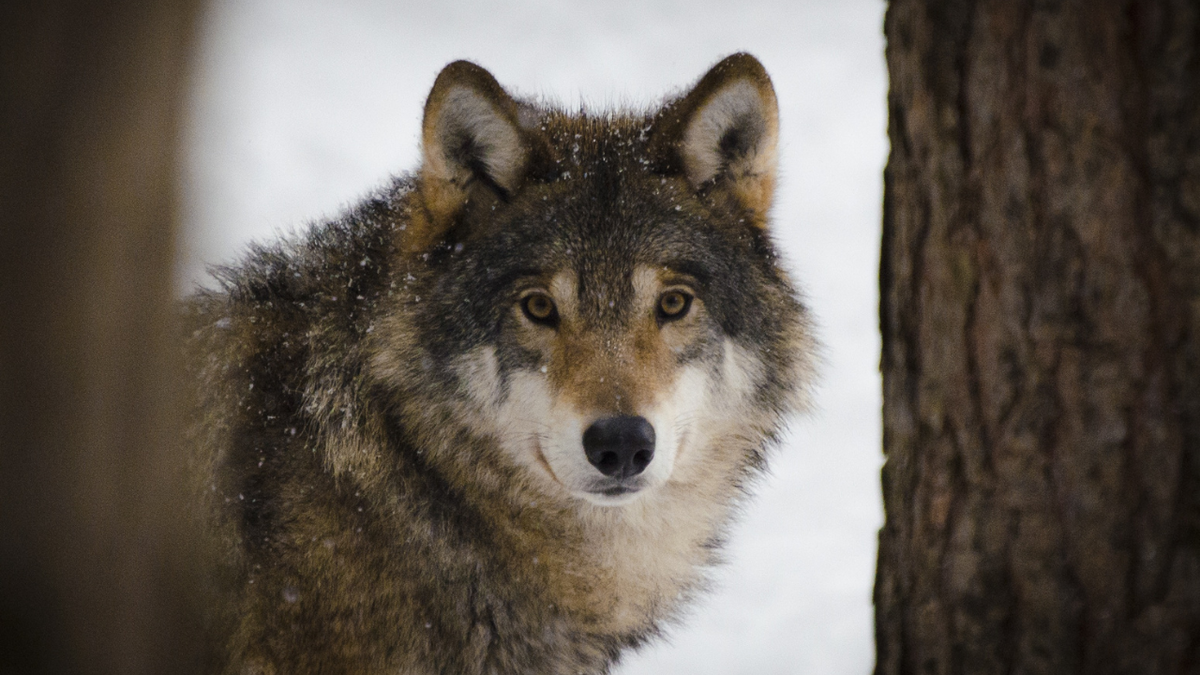Organizations write letter asking Canadian government to not give wolves to Colorado

COLORADO SPRINGS, Colo. (KRDO) – Over two dozen livestock groups who have previously urged Colorado Parks and Wildlife (CPW) to stop its wolf reintroduction efforts are now directing their efforts toward the Canadian government.
In September, CPW announced that its next group of up to 15 wolves would be sourced from British Columbia. The province has been "culling" its wolf population since 2015 in response to the impact wolves have had on local caribou and moose populations.
A formal petition was filed the same month by 26 agricultural groups, who asked the CPW Commission to pause the addition of any more wolves "until Colorado's wolf management program can adequately address the conflicts between wolves and livestock producers."
RELATED: 26 Colorado agricultural groups file petition to halt wolf reintroduction efforts
Now, the groups have sent a letter to a dozen Canadian officials and government agencies asking them to reconsider their decision to be Colorado's next wolf provider.
The authors of the letter say Colorado's wolf reintroduction has seen a rocky start, with three of the ten wolves introduced in December of 2023 dying within the first year and another recaptured after being linked to high livestock fatalities.
"[We're asking them to] slow this down. Let's make sure that it's successful not just for livestock producers, but for the wolves themselves," said Ginny Harrington with the Holy Cross Cattlewomen's Association. "We don't want to go through that stress and we don't want it to be such a contentious thing."
Harrington was one of the ranchers who signed the petition.
According to the letter, about two dozen livestock were killed by the wolves from January to August along with additional "missing" livestock and suspected wolf-related deaths.
The letter also mentions that other Western states and Native American tribes have refused to provide wolves to CPW, citing "growing public opposition" to the program. It points to specifics in the group's petition, which calls for a specific series of program elements to be put in place before introducing more wolves.
“Among other things, the Petition demonstrates that Colorado needs to implement a fully developed site vulnerability assessment for each affected ranch, a program for carcass management given Colorado’s desire to change historic practices, a range rider program for managing wolf access to livestock in the many ranching regions of the state, and a rapid response team for livestock depredations. Colorado says these programs are being developed, but they are not yet in place. Funding issues for the program are unresolved," the letter reads in part.
CPW Director Jeff Davis issued a statement to our Denver news partners in response to the letter, writing:
"CPW has been listening to the concerns, questions and recommendations of the ranchers, counties and wolf advocates throughout the entire first year of gray wolf restoration. We have been working to address concerns through the Ad Hoc Wolf Working Group and our ongoing partnership with CDA, Wildlife Services, CSU Extension, and NGOs.
CPW is committed to implementing the Colorado Wolf Restoration and Management Plan and the will of the voters. The concerns raised in this request are already being resolved for this capture and release season. For example, we heard the ranching community’s concern about Oregon wolves having a history with livestock. We pursued potential sources where there is little to no livestock presence.
We are meeting with local communities and elected officials and having open discussions about potential release locations and how to prepare to live with wolves. We continue to conduct site assessments with willing ranchers and we are partnering with CDA and hosting local conflict mitigation training sessions with producers to further prepare for wolves on the landscape.
We will be sharing more information related to coexistence programs and translocation planning with the public through the end of this year. We are strengthening these programs and have been talking with states that manage wolves from the beginning, learning from them and adopting best practices from programs that have been proven to be effective in states with wolves.
It’s also important to stress the biological importance of continuing the releases of wolves to supplement the first round of releases done last season. Adding animals to our existing population will increase the likelihood of pairing, breeding and pack formation. This will create territories and allow us to monitor patterns within a territory. Thus, improving our ability to collaborate with ranchers on active behavior and coexistence strategies to best protect livestock.
CPW takes our responsibility for the wellbeing of the ranchers, their livestock and the wolves very seriously. We are confident we will be successful restoring a sustainable population of gray wolves to Colorado while avoiding and minimizing impacts to our critical ranching industry and rural communities."



